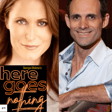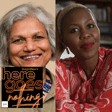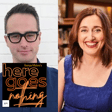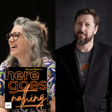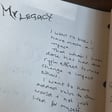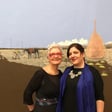
Episode 8 : Playwriting and activism with TJ Young
The playwright's role is one of the most vital yet mysterious in all of the arts: far from the classic idea of a single writer in a room producing a completed script, the playwright is a collaborator and innovator, who generates ideas that must then be brought to life through dramaturgs, actors, directors, and designers.
TJ Young is an award-winning playwright, fierce advocate for equity, beloved educator, and acclaimed podcaster. TJ joins Georgia this week to discuss the playwright's process, tips for getting started and keeping going, as well as details about the new play that Georgia has written! Inevitably, the conversation strays into American politics and the way the current environment has impacted the arts sector, but when you have two people in the room accustomed to solving all the problems in the world, the outcome is nothing but positive.
For links to what TJ and Georgia discuss, check out https://heregoesnothingpod.substack.com/
